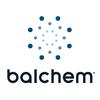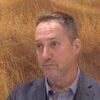Check out what is new in Dairy Cattle
Find the best technical articles, forums, and videos on Dairy Cattle at Engormix. Enter now and interact with the world's largest agricultural social network.
.jpg&w=3840&q=75)
Prof. Anna Catharina Berge from Ghent University delves into the intricate challenges faced during the critical first six months of a calf's life....
Comments : 2
Recommendations: 6
Dairy cows are truly remarkable creatures. Consider the rapid transformation of a modern Holstein cow, going from zero to producing as many as 50 kilograms of energy-corrected milk per day in just 3 to 4 weeks of lactation. Such incredible production demands dynamic and integrated adaptations in multiple tissues to cope with...
Comments : 0
Recommendations: 1
.jpg&w=3840&q=75)
During this Real Science Lecture from Dr. Joe McFadden and Balchem, we share research and details on how we can speed up progress to mitigating methane emissions...
Comments : 0
Recommendations: 1
INTRODUCTION The profitability of dairy farms is an increasing concern in many economies around the world (Ellis et al., 2020; Ojo et al., 2020). This is the result of continuous economic, political, social, and environmental factors affecting different countries and regions (O’Leary et al., 2018; Ramsbottom et al., 2021). Therefore, dairy farmers are continuously searching and updating strategies and technologies that can improve the dairy farm technical and economic...
Comments : 0
Recommendations: 1
Post-calving care for cattle is a critical phase in dairy farming that significantly impacts the health and productivity of both cows and their offspring. Proper care during this period is essential to ensure a smooth transition from pregnancy to lactation and to prevent potential complications. In this article, we will delve into the key aspects of post-calving care for cattle and why it is of utmost importance. Understanding the Significance of Post-Calving Care Calving...
Comments : 0
Recommendations: 0
.jpg&w=3840&q=75)
During this Real Science Lecture from Dr. Joe McFadden and Balchem, we share research and details on how we can speed up progress to mitigating methane emissions...
Comments : 2
Recommendations: 1
.jpg&w=3840&q=75)
Dr. Mubarak Ali, Senior Technical Service Manager Asia South at Evonik Animal Nutrition, speaks about the uniqueness of a Rumen-protected DL Methionine, Mepron®
...
Comments : 4
Recommendations: 2
An article dealing with this topic was recently published in the prestigious journal of the dairy industry, Journal of Dairy Science (Espinoza-Sandoval et. al., JDS 106: 2023). The article examines, using a statistical model, the feasibility of investing in cooling the cows in the summer in various countries around the Mediterranean Sea (Europe, North Africa and the Middle East), where there are different “climate zones” regarding dairy farming. The model presented in this...
Comments : 0
Recommendations: 0
When talking about the negative impact of heat stress on milk production, we usually refer to the impact on milk volume (liters per cow per day or per lactation). The reality is that this is only part of the problem, which causes economic losses to farmers and dairy industry. As will be presented in this article, heat stress negatively affects milk fat and protein content and reduce milk quality, by increasing milk Somatic Cell Count (SCC) and bacterial count. In some cases, especially in...
Comments : 1
Recommendations: 3
.jpg&w=3840&q=75)
Samuel-Pierre Camus, EMEA Director of Balchem Animal Nutrition & Health, shares his views on R&D projects related to choline production...
Comments : 0
Recommendations: 0
.jpg&w=3840&q=75)
Dr. Ryan Ordway, Global Director of Strategic Accounts at Balchem, explains how Balchem has become a leader in rumen-protected methionine and also about its ongoing research and development projects
...
Comments : 0
Recommendations: 0
INTRODUCTION This article aims to show didactic photographs as viable agronomic alternative practices. Guar is a legume with low soil fertility requirements and minimum use of irrigation water, considered a drought-tolerant plant, since it takes advantage of summer rainfall during the rainy season for its growth. It should allow enough time for the main wheat crop being stablished on the recommended planting date for each region. Inoculation with strains of Microsymbiont...
Comments : 0
Recommendations: 0
.jpg&w=3840&q=75)
What steps is Evonik taking to decrease the environmental footprint of animal farming? Hear what Faazi Adam, Director Sustainability at Evonik Animal Nutrition, has to say about it...
Comments : 0
Recommendations: 5
.jpg&w=3840&q=75)
Dr. Mubarak Ali, Senior Technical Service Manager Asia South at Evonik Animal Nutrition, points out the importance of using amino acids in dairy cattle Importance of Amino Acids in Dairy Cattle, for better performance and greater sustainability....
Comments : 0
Recommendations: 1
.jpg&w=3840&q=75)
Samuel-Pierre Camus, EMEA Director of Balchem Animal Nutrition & Health, offers details about the Choline production worldwide developed by Balchem
...
Comments : 0
Recommendations: 0
.jpg&w=3840&q=75)
Listen and watch as Philip Metcalfe of Metcalfe Farms in Leyburn, North Yorkshire shares his success with ReaShure-XC from Balchem. While using ReaShure-XC, Metcalfe Farms found improvements in: Milk yield (+2.3 kg/day). Transition into the milking herd. Metabolic diseases. Overall cow health. All cows can benefit from ReaShure-XC...
Comments : 0
Recommendations: 1
A lot of information has been published in the last decades, dealing with the negative effect of summer heat stress on the productive and reproductive traits of the high yielding cow. Very limited information existed however, up until the last years, on the effect of heat stress on the feed efficiency of cows (as estimated by the feed to milk ratio). Knowing the full extent of the economic losses caused to the cows due to heat load can help to present to the dairy farmers...
Comments : 1
Recommendations: 1
Heat stress related production loss, compromised welfare and cattle mortality are global concerns, which are increasing in the context of climate change and increase productivity of the cows. Cattle response to heat stress varies, based on individuality and thermal environment. In this article I intend to describe heat stress monitoring, in individual and herd basis, making use of thermal indices, as well as physiological and behavioral changes occurring in the heat stressed cow. 1....
Comments : 0
Recommendations: 2
Heat stress related production loss, compromised welfare and cattle mortality are global concerns which are increasing in the context of climate change and global warming. To maintain the welfare and performance of livestock, monitoring the effects of climatic extremes is important. Farming systems are becoming increasingly automated and remote/automated monitoring of animals is an ultimate need to overcome the limitations of human observation for continuous characterization of cows...
Comments : 0
Recommendations: 0




.jpg&w=3840&q=75)



















